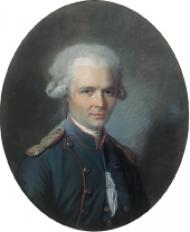The Ruprecht-Karls-Universität Heidelberg (Heidelberg University, Ruperto Carola) is a public research university located in Heidelberg, Baden-Württemberg, Germany. Founded in 1386, it is the oldest university in Germany and was the third university established in the Holy Roman Empire. Heidelberg has been a coeducational institution since 1899. Today the university consists of twelve faculties and offers degree programmes at undergraduate, graduate and postdoctoral levels in some 100 disciplines. It is a German Excellence University, as well as a founding member of the League of European Research Universities and the Coimbra Group. The language of instruction is usually German.
Rupert I, Elector Palatine established the university when Heidelberg was the capital of the Electoral Palatinate. Consequently, it served as a centre for theologians and law experts from throughout the Holy Roman Empire. Matriculation rates declined with the Thirty Years' War, and the university did not overcome its fiscal and intellectual crises until the early 19th century. Subsequently, the institution once again became a hub for independent thinkers, and developed into a "stronghold of humanism", and a centre of democratic thinking. At this time, Heidelberg served as a role model for the implementation of graduate schools at American universities. However, the university lost many of its dissident professors and was marked a NSDAP university during the Nazi era (between 1933 and 1945). It later underwent an extensive denazification after World War II—Heidelberg serving as one of the main scenes of the left-wing student protests in Germany in the 1970s.
Modern scientific psychiatry, psychopharmacology, psychiatric genetics, environmental physics, and modern sociology were introduced as scientific disciplines by Heidelberg faculty. The university has an emphasis on research and has been associated with 55 Nobel Prize laureates. It is consistently ranked among Europe's top overall universities, and is an international education venue for doctoral students, with approximately 1,000 doctorates successfully completed every year, and with more than one third of the doctoral students coming from abroad. International students from some 130 countries account for more than 20 percent of the entire student body. Heidelberg comprises two major campuses: one in Heidelberg's Old Town and another in the Neuenheimer Feld quarter on the outskirts of the city. The university's noted alumni include eleven domestic and foreign Heads of State or Heads of Government.
Founding
The Great Schism of 1378 made it possible for Heidelberg, a relatively small city and capital of the Electorate of the Palatinate, to gain its own university. The Great Schism was initiated by the election of two popes after the death of Pope Gregory XI in the same year. One successor resided in Avignon (elected by the French) and the other in Rome (elected by the Italian cardinals). The German secular and spiritual leaders voiced their support for the successor in Rome, which had far-reaching consequences for the German students and teachers in Paris: they lost their stipends and had to leave.
Rupert I recognized the opportunity and initiated talks with the Curia, which ultimately lead to a Papal Bull for foundation of a university. After having received on October 23, 1385 the permission from pope Urban VI to create a school of general studies (Latin: studium generale), the final decision to found the university was taken on June 26, 1386 at the behest of Rupert I, Count Palatine of the Rhine. As specified in the papal charter, the university was modelled after University of Paris and included four faculties: philosophy, theology, jurisprudence, and medicine.
On October 18, 1386, a special Pontifical High Mass in the Heiliggeistkirche was the ceremony that established the university. On October 19, 1386, the first lecture was held, making Heidelberg the oldest university in Germany. In November 1386, Marsilius of Inghen was elected first rector of the university. The rector seal motto was semper apertus—i.e., "the book of learning is always open."
The university grew up quickly and in March 1390, 185 students were enrolled at the university.

